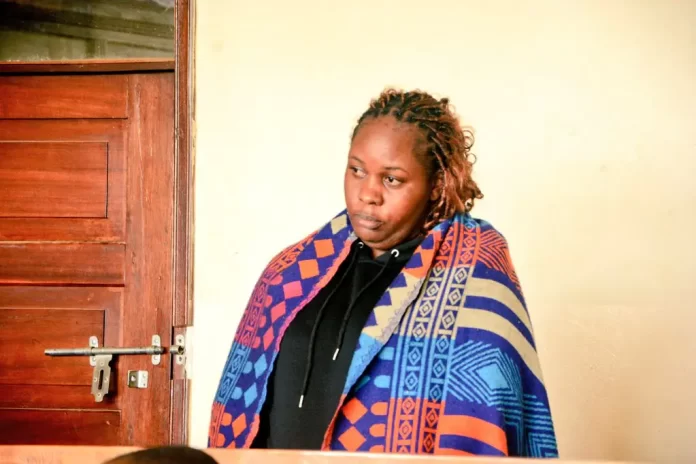The State House Anti-Corruption Unit (SHACU), in conjunction with the Criminal Investigation Department (CID) and the Office of the Director of Public Prosecution (ODPP), has arraigned a fraudster identified as Annah Asiimwe before the Mbarara Chief Magistrates Court on charges of obtaining money by false pretense, forgery, and uttering false documents.
According to a statement released by SHACU on June 10, 2024, the accused, who was pretending to be the biological daughter of the late Bishop Paul Bakyenga, fraudulently obtained millions of shillings from a number of victims in the guise of transferring the late bishop’s properties into their names.
“The accused forged share certificates from MTN, the World Bank, and letters purported to be from the late and the Catholic Church showing that the bishop had shares in the World Bank, MTN, Ford Motors, and several petrol stations, which was not true,” the statement read in part.
The statement further stated that the suspect was remanded until July 9, 2024.
This is not an isolated incident; on June 1, 2024, SHACU arraigned Sarah Atim, the Chairperson of Ipito Aweno PDM SACCO in Lira city, before the Lira Chief Magistrates Court on charges of obtaining money by false pretense and remanded her until June 14, 2024.
If convicted under Section 11(1) of the Anti-Corruption Act, the accused individuals could face a prison sentence of up to seven years and a fine not exceeding UGX 5.3 million. Additionally, those found guilty under Section 190(1) for fraudulent procurement may be sentenced to imprisonment for a maximum of three years.
The efforts of SHACU, CID, and ODPP reflect the government’s determination to combat corruption at all levels. By holding accountable those who misuse their positions for personal gain, these actions aim to restore transparency, accountability, and good governance. The public expects that such measures will serve as a deterrent, discouraging any further acts of corruption and restoring faith in the public service.















